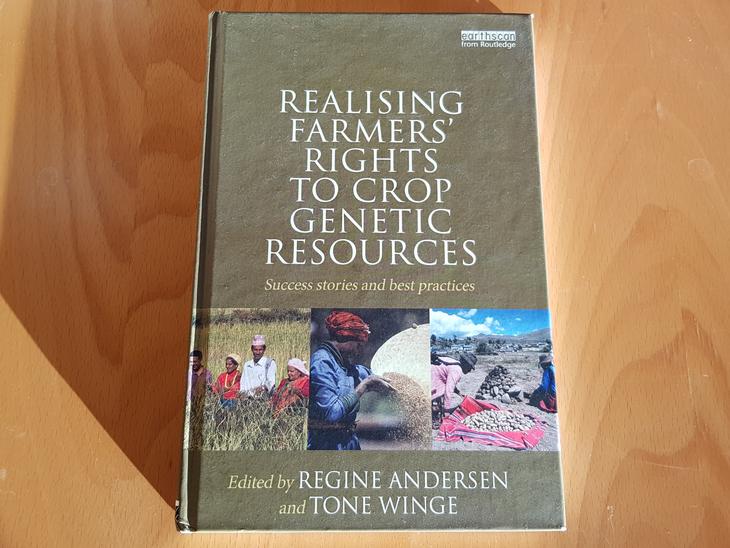
2011 – 2013: Success stories and best practices – and other experiences
In this biennium, there were lots of activities, even though no global or regional events took place. Many of the activities were reflected in a compilation from the Plant Treaty Secretariat. Among the contributions was a new book on success stories from the realization of Farmers’ Rights.
The compilation of submissions for the Fifth Session of the Governing Body of the Plant Treaty (GB5) can be found here (PDF).
Madagascar followed up on the Global Consultations on Farmers’ Rights held in Addis Ababa in 2010 with several national level meetings on Farmers’ Rights. Poland submitted a comprehensive review of its achievements regarding Farmers’ Rights and the same did Norway. Norway also reported on a comprehensive study on the state of Farmers’ Rights in Norway. In order to follow up on the findings in the study, The Norwegian Ministry of Agriculture and Food commissioned the Norwegian Genetic Resources Centre to develop a plan for the development and strengthening of Farmers’ Rights in Norway.
Eleven organizations reported on their work on Farmers’ Rights. Biowatch in South Africa had produced the policy brief ‘Securing Farmers’ Rights and Seed Sovereignty in South Africa’. The Development Fund of Norway had published the report ‘Banking for the future: Savings, Security and Seeds’, with case studies of community seed banks and how to upscale community seeds banks as a means to implement Farmers’ Rights. La Via Campesina had organized a conference at Bali, Indonesia, adopting the Bali Seed Declaration on dignity, culture and life related to peasant seed and defending the rights to such seed. Let’s Liberate Diversity had organized a European Forum for farmers and practitioners from 17 European countries conserving and renewing agricultural biodiversity. The meeting took place in Szeged, Hungary and resulted in a declaration (PDF).
Also organizations like ASUCUCH in Guatemala, Berne Declaration in Switzerland, Green Foundation in India and Li-Bird in Nepal, Practical Action in UK and the Development Fund Norway reported from the extensive activities and experiences with regard to Farmers’ Rights in their countries and internationally. In addition, the European Seed Association provided an account of their views regarding Farmers’ Rights.
A new book was also launched in this biennium: Realizing Farmers’ Rights to Crop Genetic Resources – Success stories and best practices, by Regine Andersen and Tone Winge. The book shows how realizing Farmers' Rights in developing countries contributes to poverty alleviation and food security. It further provides decision-makers and practitioners with a conceptual framework for understanding Farmers’ Rights and success stories showing how each of the elements of Farmers' Rights can be realized in practice. Challenges encountered on the way are also conveyed and offer important lessons. The stories represent different regions and localities, including Europe, Asia, Africa and Latin America, as well as various categories of stakeholders and types of initiatives and policies.
This book along with all the achievements highlighted above were presented at GB5 (the book was presented at a side event) as a basis for the negotiations taking place during this Governing Body Session.